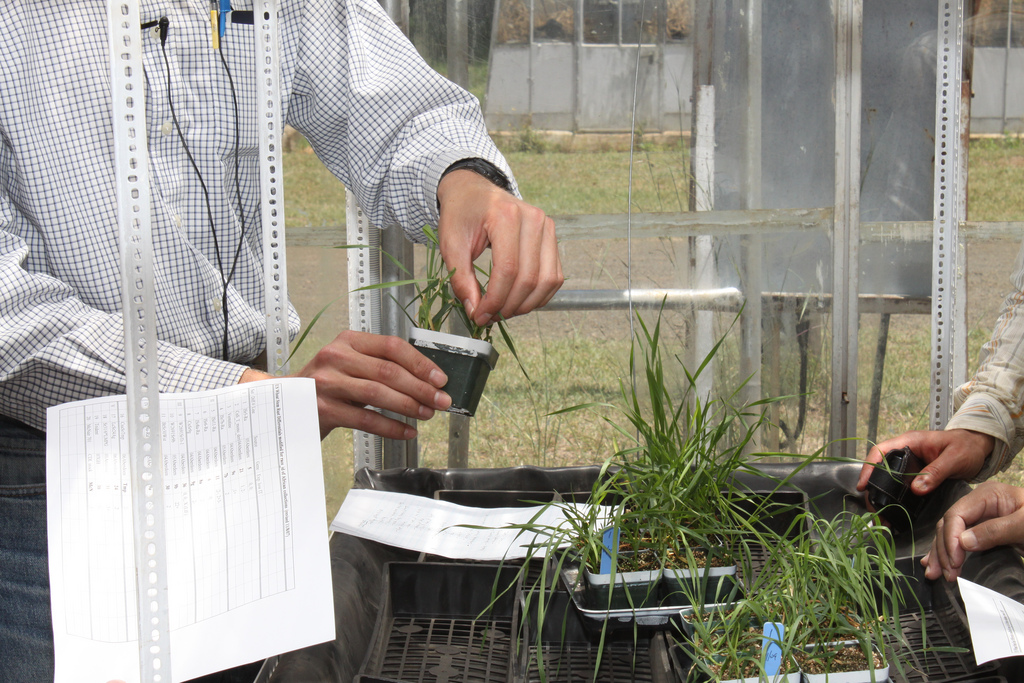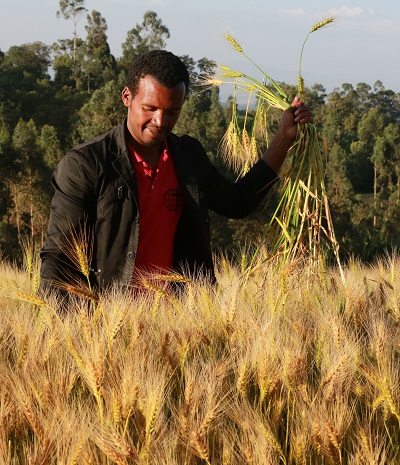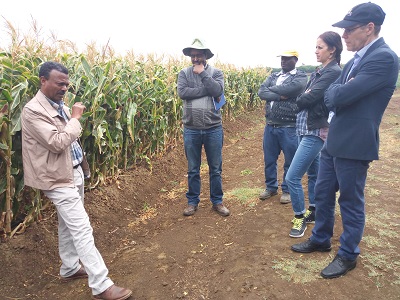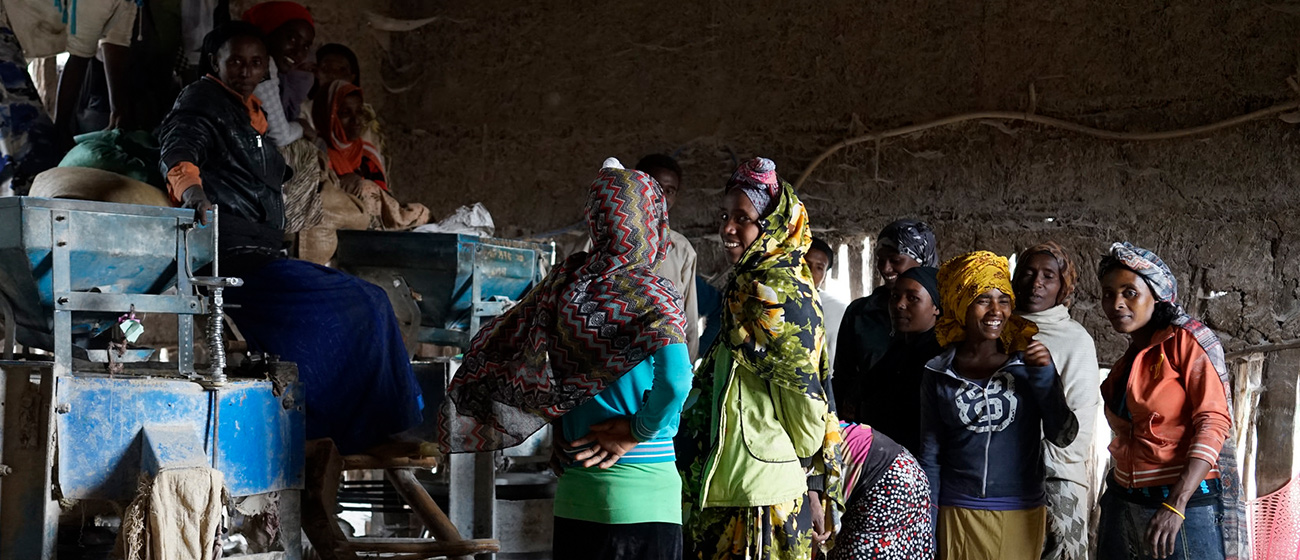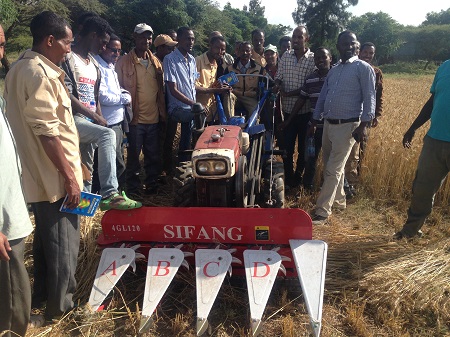Ethiopia
For more information, contact CIMMYT’s Ethiopia office.
CIMMYT collaborator wins Norman Borlaug Award for Field Research and Application
 Nutrition, health and food security
Nutrition, health and food security
Matthew Rouse, a researcher with the Agricultural Research Service (ARS) is being recognized for his work to contain and reduce the impact of Ug99.
Seed companies are responsible for creating demand for quality protein maize
 Nutrition, health and food security
Nutrition, health and food security
Recently, the CIMMYT-led, Global Affairs Canada-funded, Nutritious Maize for Ethiopia project has led field visits for a number of high-level stakeholders.
How collaboration can help grow and transform agriculture in Africa
 Nutrition, health and food security
Nutrition, health and food security
Money alone can’t solve Africa’s agricultural problems. International collaboration is key.
Farmers in Ethiopia willing to pay more for quality protein maize
 Nutrition, health and food security
Nutrition, health and food security
In Ethiopia, 44 percent of children under the age of five experience impaired growth due to poor nutrition. Quality protein maize helps combat stunting and boosts nutrition in children who survive on a maize-dominated diet.
End of eight-year project leaves farmers ready to tackle climate change in Africa
 Climate adaptation and mitigation
Climate adaptation and mitigation
After eight years the Sustainable Intensification of Maize-Legume Cropping Systems for Food Security in Eastern and Southern Africa (SIMLESA) project concludes this June.
Science can reverse “new normal” of climate change-related disasters
 Climate adaptation and mitigation
Climate adaptation and mitigation
Building small scale mechanization capacity of service providers in Ethiopia
 Capacity development
Capacity development
A CIMMYT project aims to increase soil fertility through direct row planting of major crops in Ethiopia, such as maize, wheat and teff.
CIMMYT promotes gender awareness in agriculture research and development in Ethiopia
 Capacity development
Capacity development
Gender awareness and gender-sensitive approaches are slowly spreading into agricultural research, extension, and policy in Ethiopia, according to industry experts.
Emergency seed fuels quick farm recovery in drought-affected Ethiopia
 Climate adaptation and mitigation
Climate adaptation and mitigation
In response to Ethiopia’s worst drought in 50 years and a critical shortage of seed in 2016, CIMMYT and partners delivered over 3,400 tons of high quality seed to farmers.
Women are the foundation for change in rural Ethiopia
 Gender equality, youth and social inclusion
Gender equality, youth and social inclusion
Community conversations, a human-centered approach, puts people in charge of their own development in maize-based communities in Ethiopia.
Ethiopian farmers profit from scaled-up, fast-track production of disease resistant wheat seed
 Capacity development
Capacity development
More than 75,000 small-scale wheat farmers in Ethiopia’s 4 major wheat-growing regions gain access to a vital asset—over 400 tons of seed of new, disease resistant wheat varieties.
Community-based approach to gender research has far-reaching impacts
 Gender equality, youth and social inclusion
Gender equality, youth and social inclusion
Borlaug Dialogue delegates widen net to curb threat from fall armyworm
 Nutrition, health and food security
Nutrition, health and food security
World Food Prize laureates have joined forces with an international alliance battling the fall armyworm, an aggressive pest indigenous to the Americas with a voracious appetite, and now widespread throughout Africa.
Smallholder farmers to gain from targeted CRISPR-Cas9 crop breeding
 Innovations
Innovations
Gene editing technology could revolutionize the way scientists breed high-yielding drought, disease and pest resistant, high quality plant seeds, greatly reducing the time it currently takes to develop new varieties
